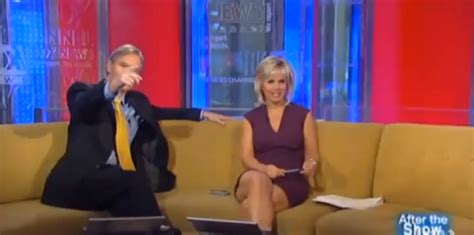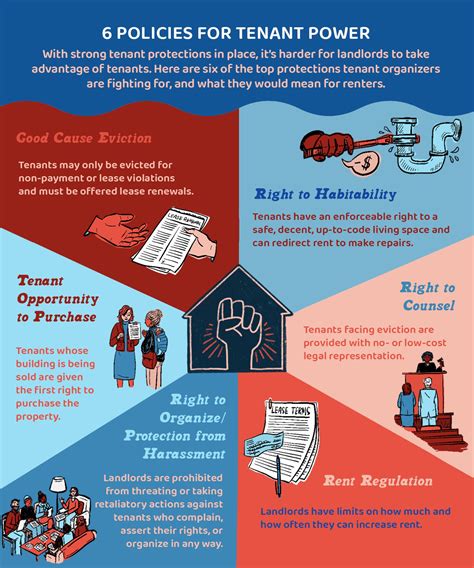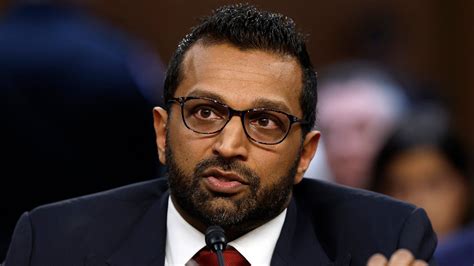
Ainsley Earhardt, a Fox News host, issued an unusual on-air apology to “the world” for the current state of cable news, acknowledging its contribution to societal division and expressing hope for a more unifying future.
During a segment on Fox & Friends, Earhardt deviated from the typical morning show banter to address what she described as the negative impact of cable news on the nation. “I want to apologize to the world,” she said, adding, “Because I think all of us in cable news can do better to unify this country. To not divide it.” Her remarks came amidst a broader national conversation about media polarization and its effects on political discourse and social cohesion. While she did not single out any specific network or individual, her statement was seen as a rare moment of introspection within the often-combative landscape of cable news. The apology sparked considerable discussion across social media and within media circles, with reactions ranging from praise for her candor to skepticism about the sincerity and potential impact of her words.
Ainsley Earhardt’s surprising apology during a recent broadcast of Fox & Friends has ignited a significant debate about the role and responsibility of cable news networks in shaping public discourse and contributing to societal division. Her candid admission that “all of us in cable news can do better to unify this country, to not divide it” represents a departure from the often-polarized rhetoric that characterizes much of the industry. This apology, although brief, carries considerable weight given Earhardt’s prominent position within Fox News, a network frequently criticized for its partisan slant and divisive commentary. Understanding the context, potential motivations, and possible ramifications of this apology requires a closer examination of the factors that may have prompted it, as well as the broader dynamics of the cable news ecosystem.
Earhardt’s statement occurred during a seemingly typical segment of Fox & Friends, a morning show known for its blend of news, opinion, and lighthearted features. The specific topic that triggered her apology was not immediately apparent, but the context suggests it arose from a general discussion about the state of the nation and the pervasive sense of division that many Americans feel. Her remark was spontaneous and unscripted, lending it a sense of authenticity that resonated with some viewers.
“I just feel like we can do better,” Earhardt continued, expressing a sentiment that many media critics and concerned citizens share. The issue of media polarization is not new, but it has become increasingly acute in recent years, fueled by the proliferation of partisan news outlets, the echo chamber effects of social media, and the tendency of many viewers to seek out information that confirms their existing beliefs. Cable news networks, in particular, have been accused of contributing to this problem by amplifying divisive voices, promoting inflammatory rhetoric, and prioritizing ratings over responsible journalism.
Earhardt’s apology, therefore, can be seen as a tacit acknowledgment of these criticisms. While she did not explicitly admit fault or name any specific instances of wrongdoing, her statement implied that the cable news industry as a whole bears some responsibility for the current state of affairs. This is a significant admission, especially coming from a host at Fox News, which has often defended its coverage against accusations of bias and partisanship.
The motivations behind Earhardt’s apology are open to interpretation. It is possible that she genuinely believes that cable news networks can and should do more to promote unity and understanding. Perhaps she has become disillusioned with the constant negativity and division that often dominates the airwaves. Alternatively, her apology could be seen as a calculated move to improve her image or to deflect criticism from Fox News. Some observers have suggested that it may be part of a broader effort by the network to moderate its tone and appeal to a wider audience.
Regardless of her motivations, Earhardt’s apology has sparked a much-needed conversation about the role of cable news in shaping public opinion and influencing political discourse. It has also raised questions about the potential for reform within the industry. Can cable news networks truly change their ways and become more unifying forces in American society? Or are they inherently predisposed to division and partisanship?
The answer to this question is complex and multifaceted. On the one hand, cable news networks are businesses that operate in a competitive market. They are driven by the need to attract viewers and generate revenue. This often leads them to prioritize sensationalism and conflict over nuanced reporting and balanced analysis. On the other hand, cable news networks also have a responsibility to serve the public interest. They have a powerful platform that can be used to inform, educate, and inspire. The challenge is to find a way to balance these competing interests.
One possible solution is for cable news networks to adopt stricter journalistic standards. This would involve fact-checking claims more rigorously, avoiding inflammatory rhetoric, and presenting a wider range of perspectives. It would also require a commitment to transparency and accountability. When mistakes are made, they should be acknowledged and corrected promptly.
Another solution is for viewers to become more discerning consumers of news. This means being aware of the biases of different news outlets and seeking out information from a variety of sources. It also means being critical of the information that is presented and not accepting everything at face value.
Ultimately, the future of cable news depends on both the actions of the networks themselves and the choices of the viewers. If both parties are willing to commit to responsible journalism and informed consumption, then it may be possible to create a more unifying and constructive media environment.
The implications of Earhardt’s apology are potentially far-reaching. It could signal a shift in the way that cable news networks approach their coverage of political and social issues. It could also inspire other media figures to speak out against division and partisanship. Whether or not it leads to meaningful change remains to be seen, but it is certainly a step in the right direction. The apology underscores the growing recognition that the current state of cable news is unsustainable and that a new approach is needed. One that prioritizes accuracy, fairness, and a commitment to the common good.
The reaction to Earhardt’s apology has been mixed, with some praising her for her honesty and courage, while others have dismissed it as a cynical PR stunt. On social media, the hashtag #AinsleyApology trended for several hours, with users debating the sincerity and potential impact of her words. Some commentators have pointed out that Fox News has a long history of promoting divisive rhetoric and that Earhardt’s apology does little to address the underlying problems. Others have argued that it is a positive sign that even a prominent figure at Fox News is willing to acknowledge the need for change.
Regardless of one’s perspective, Earhardt’s apology has undoubtedly injected a new element into the ongoing debate about the role of cable news in American society. It has forced viewers and media professionals alike to confront the question of whether the current model is sustainable and whether a more constructive approach is possible. The answer to this question will have profound implications for the future of American democracy.
Earhardt’s expression of remorse also highlights the human element within the often-impersonal world of cable news. Behind the polished sets and carefully crafted soundbites are individuals who are grappling with the same challenges and anxieties as the rest of the population. Her willingness to acknowledge her own fallibility and to express a desire for a better future is a reminder that even those who are often seen as purveyors of division are capable of empathy and reflection.
In conclusion, Ainsley Earhardt’s apology is a significant moment in the history of cable news. It is a recognition that the current model is broken and that a new approach is needed. Whether or not it leads to meaningful change remains to be seen, but it is certainly a step in the right direction. The future of cable news, and indeed the future of American democracy, depends on the willingness of viewers and media professionals alike to commit to responsible journalism and informed consumption. Only then can we hope to create a more unifying and constructive media environment.
The challenge now lies in translating these words into concrete action. It is not enough for Earhardt to simply apologize; she must also work to promote more responsible journalism within Fox News. This could involve advocating for stricter fact-checking standards, challenging inflammatory rhetoric, and promoting a wider range of perspectives. It will also require a willingness to hold herself and her colleagues accountable for their actions.
Similarly, viewers must also take responsibility for their own media consumption. This means being aware of the biases of different news outlets and seeking out information from a variety of sources. It also means being critical of the information that is presented and not accepting everything at face value.
Ultimately, the creation of a more unifying and constructive media environment will require a collective effort. It will require cable news networks to adopt stricter journalistic standards, viewers to become more discerning consumers of news, and media figures to speak out against division and partisanship. Only then can we hope to heal the divisions that are plaguing American society.
The long-term impact of Earhardt’s apology remains to be seen. It is possible that it will be quickly forgotten, overshadowed by the next news cycle. However, it is also possible that it will serve as a catalyst for change, inspiring other media figures to speak out and prompting cable news networks to rethink their approach. Only time will tell.
The apology from Ainsley Earhardt also puts pressure on other cable news hosts and networks to reflect on their role in shaping public discourse. It raises the question of whether they are willing to acknowledge their own contributions to division and whether they are prepared to take steps to promote unity. The answer to this question will have a significant impact on the future of the industry.
In the broader context, Earhardt’s statement can be seen as part of a growing trend of introspection and self-criticism within the media industry. In recent years, there has been increasing scrutiny of the role of social media platforms, news organizations, and individual journalists in spreading misinformation, amplifying extremist voices, and contributing to political polarization. This scrutiny has led to calls for greater accountability, transparency, and ethical conduct.
Earhardt’s apology is a reflection of this trend. It is a recognition that the media industry has a responsibility to serve the public interest and that it must do more to address the challenges facing American society. Whether or not this recognition will translate into meaningful change remains to be seen, but it is certainly a positive sign.
The incident also underscores the importance of media literacy education. In an era of fake news, partisan echo chambers, and social media manipulation, it is essential that citizens have the skills and knowledge to critically evaluate information and to distinguish between reliable sources and unreliable ones. Media literacy education should be a core component of the curriculum in schools and universities. It should also be promoted through public service campaigns and community outreach programs.
By empowering citizens to become more informed and discerning consumers of news, we can help to create a more resilient and democratic society. A society that is less susceptible to misinformation and manipulation and more capable of engaging in constructive dialogue and problem-solving.
In the wake of Ainsley Earhardt’s apology, it is important to remember that the responsibility for creating a more unifying and constructive media environment rests not only on the shoulders of cable news networks and media figures, but also on the shoulders of individual citizens. We all have a role to play in promoting responsible journalism, informed consumption, and constructive dialogue. By working together, we can create a media landscape that is worthy of our democracy.
The apology also serves as a reminder that the media landscape is constantly evolving. New technologies, platforms, and business models are emerging all the time. This creates both opportunities and challenges. On the one hand, it allows for greater diversity of voices and perspectives. On the other hand, it also makes it easier for misinformation to spread and for echo chambers to form.
In order to navigate this complex and ever-changing landscape, it is essential that we remain vigilant and adaptable. We must be willing to embrace new technologies and platforms, but we must also be mindful of the potential risks. We must be committed to promoting responsible journalism and informed consumption, and we must be willing to hold ourselves and others accountable for our actions.
By doing so, we can ensure that the media landscape remains a vital force for democracy and progress. A force that informs, educates, and inspires, and that helps us to build a more just and equitable society.
Earhardt’s apology, while a seemingly small gesture, could be a harbinger of larger shifts within the media landscape. It highlights the growing awareness of the need for more responsible and ethical journalism, and it underscores the importance of media literacy education. By working together, we can create a media environment that is worthy of our democracy.
The context surrounding Earhardt’s apology also brings into focus the upcoming 2024 election. The political climate is already highly charged, and the media will undoubtedly play a significant role in shaping the narrative. It is therefore crucial that news organizations, including cable news networks, approach their coverage with a sense of responsibility and a commitment to fairness.
The election will be a test of our democracy, and the media will be on the front lines. It is imperative that they resist the temptation to engage in sensationalism and partisan bias, and that they instead focus on providing accurate and informative reporting that allows citizens to make informed decisions.
Ainsley Earhardt’s apology is a reminder that the media has a powerful influence on society, and that it must use that influence wisely. By promoting responsible journalism, informed consumption, and constructive dialogue, we can help to create a more unifying and constructive media environment. An environment that strengthens our democracy and promotes the common good.
The scrutiny surrounding cable news networks extends beyond just political coverage. Their impact on social and cultural issues is also significant. The way they frame debates on topics such as race, gender, and immigration can have a profound effect on public opinion and social cohesion.
It is therefore essential that cable news networks approach these issues with sensitivity and nuance. They must avoid perpetuating stereotypes and promoting divisive rhetoric, and they must instead strive to foster understanding and empathy.
Earhardt’s apology serves as a reminder that the media has a responsibility to promote social justice and equality. By using their platform to amplify marginalized voices and to challenge injustice, they can help to create a more inclusive and equitable society.
The broader implications of Earhardt’s apology touch upon the need for greater diversity within the media industry. The lack of diversity in newsrooms and boardrooms can lead to biased coverage and a failure to represent the experiences of all Americans.
It is therefore essential that media organizations make a concerted effort to recruit and retain journalists and executives from diverse backgrounds. By doing so, they can ensure that their coverage is more accurate, fair, and representative of the communities they serve.
Ainsley Earhardt’s apology is a reminder that the media has a responsibility to promote diversity and inclusion. By creating a more diverse and inclusive media landscape, we can help to build a stronger and more vibrant democracy.
Finally, it is important to recognize that the challenges facing the media industry are not unique to the United States. Media polarization, misinformation, and the erosion of trust in institutions are global phenomena.
It is therefore essential that we learn from the experiences of other countries and that we work together to develop solutions that can be applied on a global scale. International collaboration and cooperation are essential to ensuring that the media remains a force for good in the world.
Ainsley Earhardt’s apology is a reminder that the media has a global responsibility. By working together to promote responsible journalism, informed consumption, and constructive dialogue, we can help to create a more peaceful and prosperous world.
Frequently Asked Questions (FAQ):
Q1: Why did Ainsley Earhardt apologize “to the world” on Fox News?
A1: Ainsley Earhardt issued an on-air apology acknowledging the role of cable news in contributing to societal division. She expressed a desire for cable news to do better in unifying the country, rather than dividing it, reflecting a broader concern about media polarization. While the specific trigger wasn’t identified, the apology came during a segment on Fox & Friends.
Q2: What was the reaction to Ainsley Earhardt’s apology?
A2: The reaction was mixed. Some praised her honesty and courage, while others dismissed it as a PR stunt. The hashtag #AinsleyApology trended on social media, with users debating the sincerity and potential impact of her words. Commentators pointed out Fox News’ history of divisive rhetoric, questioning whether the apology would lead to real change.
Q3: What are the potential implications of Ainsley Earhardt’s apology for Fox News and the cable news industry?
A3: It could signal a shift in how cable news networks approach political and social issues, possibly inspiring other media figures to speak out against division. It raises questions about whether the current model is sustainable and whether a more constructive approach is possible, potentially leading to stricter journalistic standards and a commitment to transparency.
Q4: What can viewers do to improve the media landscape and reduce polarization?
A4: Viewers can become more discerning consumers of news by being aware of the biases of different news outlets and seeking information from a variety of sources. They should critically evaluate information and not accept everything at face value. Supporting media literacy education and engaging in constructive dialogue are also crucial steps.
Q5: What broader issues does Ainsley Earhardt’s apology highlight about the media industry?
A5: The apology underscores the need for greater accountability, transparency, and ethical conduct within the media industry. It highlights the importance of media literacy education, the challenges of media polarization and misinformation, and the responsibility of media organizations to promote social justice, diversity, and inclusion. It also points to the global nature of these challenges and the need for international collaboration.









